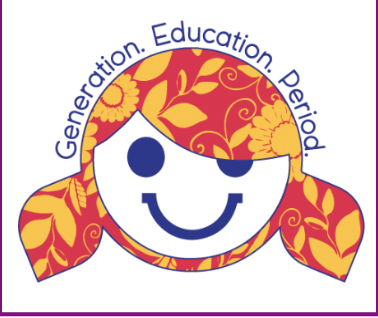Generation. Education. Period.
Imagine if you did not attend school for a week every month. Imagine if you were forced to sleep, eat and bathe in isolation for a week every month. Imagine if you were shamed for having something that you cannot control for a week every month. Many women around the world are forced to go through this and suffer in silence due to something that is natural and they did not ask to have.

Fig 1. GEP Focus Group
Generation. Education. Period. (G.E.P.) is a focus group in UWCSEA East Campus in Singapore helps to bring about a change in the way society treats menstruation. The service has three goals to make periods better: raise awareness of and reduce period poverty, work to end menstrual shaming/stigma, and promote sanitary products that are more environmentally sustainable.
G.E.P. feels the issues they address are important as countless women around the globe experience menstruation, regardless of their geographic location or even socio-economic status. They have ran and plan on running many projects within our school community in order to to achieve their Sustainable Development Goals (SDGs) which include No poverty (SDG 1), Good Health and Well-being (SDG 3), Quality Education (SDG 4), Gender Equality (SDG 5), and Responsible Consumption and Production (SDG 12).
G.E.P. was founded in 2015 by a group of friends who had an interest in period poverty during a Be The Change class. They had initially worked on sewing reusable pads with Green Umbrella and then switched to promoting menstrual cups after they came to the realisation that the pad model was not as economically sustainable as they thought and took a very long time to produce. As their first step to bring about a change, they eventually partnered with Freedom Cups, a business in Singapore that sells menstrual cups and also donates them to Lesser Economically Developed Countries (LEDCs) for every cup bought and made the Freedom Cups available in the school shop for anyone to purchase.
The teacher supervisor of the group, Melanie Wilson, has been in the focus group for six years and was a part of the founding process. She ran a group that made pads when she was a teacher in OFS (Overseas Family School). When she came to UWC, her good friend Kate Vaughan, who is a Design Technology teacher at the school, recommended that she do something similar in UWC.
Melanie went to a girls’ school where the students were constantly encouraged to be the strongest bravest version of themselves. She had always taken an interest in human rights and went on to study it at university in terms of her criminology and politics degree. All this encouraged her to be curious about the inequalities suffered by women in different parts of the world. She also felt that having two sons further cemented the topic into her due to the fact that she was able to have access to proper medical care and everything else she needed to give birth safely whereas so many other women around the world did not. This incident highlighted the stark issues of inequality to her and made her realise that so many suffer through the natural process of periods whereas those of us in other parts of the world are able to go through it with all our rights intact.
When she came into the group she didn’t have a clearly defined mission apart from the idea of doing something related to period inequality and how girls have to miss their schooling when they are on their period. After working on menstrual shaming and period poverty, they began to connect with Freedom Cups and started to talk about issues to do with sustainability and how menstrual cups were a much more environmentally friendly way to have one’s period. And so, sustainability became the third part of their mission. She believes that their current goals reinforce each other and one cannot talk about menstrual issues without acknowledging all three pieces of the puzzle.
When the student body looks at GEP as a service, Melanie wants to be viewed as a group that has a vision in relation to their mission, is goal oriented and works upon issues that connect to broader human rights themes. In the past, she has had students from the service tell her that people they knew laughed at the group which is something that really upset her and so, she also wants the group to be respected for what they do. One thing that she has really tried to build over the years is the idea of student leadership and empowering students to run the group as well.
Today, GEP is an important part of the school’s community and has successfully raised awareness about their goals during events like Human Rights Day, International Women’s Day and Family Fest through panel discussions, photo booths, assembly presentations, stalls and more. Generation. Education. Period. Is steadily making a change for good in our community about the way people see periods and women.
